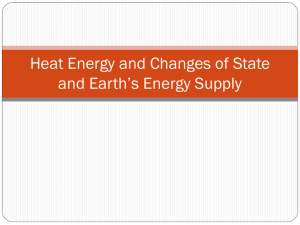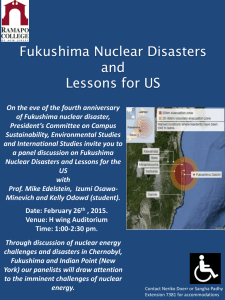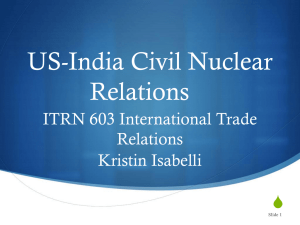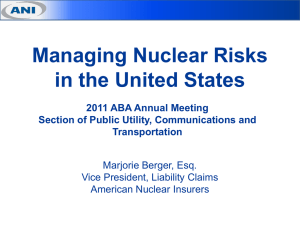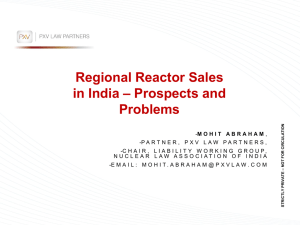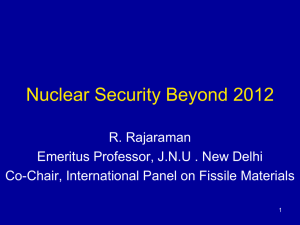The need for a level playing field
advertisement
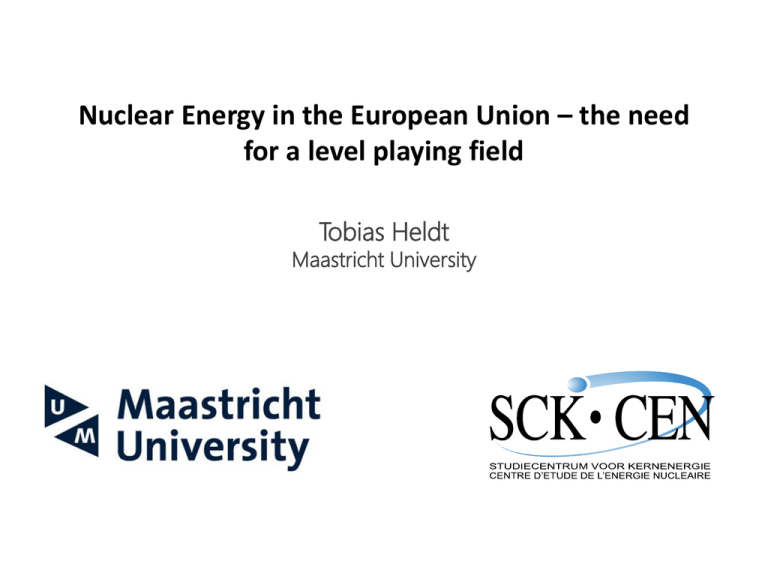
Nuclear Energy in the European Union – the need for a level playing field Tobias Heldt Maastricht University Outline 1. Introduction 2. The Status Quo 3. Core principles of the International Conventions 4. Nuclear Energy and European Law 5. Rethinking the existing principles 6. Conclusions Introduction • Currently 131 nuclear power plants in operation • No common policy on nuclear energy within the European Union • Some Member States decided for phase out, others still rely heavily on nuclear • Impetus after Fukushima? The Status Quo Two main international systems for nuclear liability: • OECD: 1960 Paris and 1963 Brussels Conventions – Belgium, Denmark, Finland, France, the Netherlands, Germany, Sweden, Italy, the UK, Spain and Slovenia are parties to the Paris/Brussels regime – Portugal and Greece are only parties to the Paris Convention • IAEA: 1963 Vienna Convention as amended by the 1997 Protocol – Bulgaria, Czech Republic, Estonia, Lithuania, Hungary, Poland, Slovakia, Latvia and Romania are parties to the 1963 Vienna regime – Latvia and Romania have also signed the Protocol from 1997 to amend the Vienna Convention, Czech Republic, Lithuania, Hungary and Poland have signed it Core principles of the International Conventions • Strict liability of the nuclear operator • Legal channelling – Rationale of this principle? – Conformity with EU law? • Limitation of liability – Are limits set at appropriate levels? • Compulsory insurance – Issues of congruence Nuclear Energy and European Law • Patchwork within the European Union concerning nuclear liability – Legal uncertainty? – Transboundary externalities? – Effect on the Internal Market? • Polluter Pays Principle – Article 191(2) states “that environmental damage should as a priority be rectified at source and that the polluter should pay” – Are current regimes in line with this principle? Nuclear Energy and European Law • Euratom Treaty remained basically unchanged since 1957 – Article 1: “It shall be the task of the Community to contribute to the raising of the standard of living in the Member States and to the development of relations with the other countries by creating the conditions necessary for the speedy establishment and growth of nuclear industries” • Rethinking the legislative competences – Article 114 TFEU – Article 192 TFEU – Dual legal basis? Rethinking the existing principles • Limitation of liability as a subsidy to nuclear industry – State aid concerns • Legal channelling vs. economic channelling – Is legal channelling (still) justified? – Price Anderson Act in the USA – New Nuclear Liability Law in India allows for recourse against designers and suppliers • Increasing liability amounts – How to increase coverage? • Role of the state? • European pooling system? Conclusions • If nuclear energy shall remain part of the Energy Mix, existing principles have to be rethought and updated • European Union could become the forerunner in the area of nuclear liability • Since we are facing a European problem, we need a European solution

![The Politics of Protest [week 3]](http://s2.studylib.net/store/data/005229111_1-9491ac8e8d24cc184a2c9020ba192c97-300x300.png)


